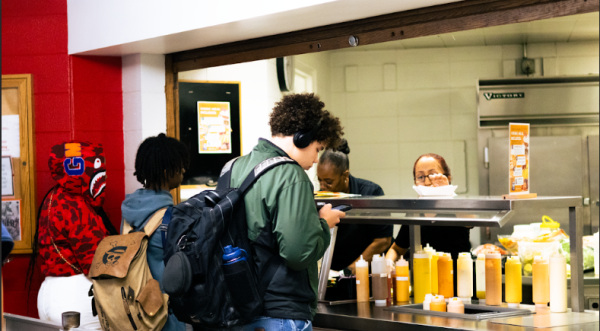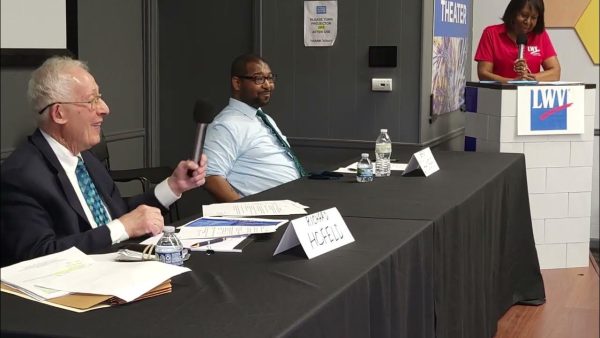Teen vaping sparks concerns of an ‘epidemic’
According to the Centers for Disease Control and Prevention, the number of middle school and high school students who smoke e-cigarettes increased to 3.6 million in 2018, from the previous 2.1 million in 2017.
On October 17, the CDC announced that there have been 33 deaths in 24 states and 1,479 lung injury cases, a majority related to vaping products containing THC. This comes as many states such as Michigan, New York, Massachusetts, Rhode Island, Washington, and Oregon have at least banned the sale of flavored vape products; Massachusetts has banned the sale of all vape products.
Also called “e-cigs,” “e-hookahs,” “mods,” “vape pens,” “vapes,” “tank systems,” and “electronic nicotine delivery systems (ENDS),” the devices were originally advertised as a safer alternative to tobacco cigarettes.
JUUL is the top selling e-cigarette brand in the country. It is shaped like a USB flash drive and is battery powered; the JUUL heats a “nicotine containing liquid” producing an aerosol that is inhaled by the user.
JUULs have a high nicotine content that the company has been criticized for in the past. However, other e-cigarette manufacturers have begun to follow their lead and add more nicotine to their products.
Teens, who doctors say use e-cigarettes at a faster rate than regular tobacco cigarettes, are especially at risk. In 2018, FDA Commissioner Dr. Scott Gottlieb called teen vaping an “epidemic” and advocated for the e-cigarette industry to address this problem.
Since e-cigarettes don’t have a heavy smell, it is hard to detect users of the device. This has become a problem, especially in schools.
“We have to go by more than smell, so people will have to be more aware of changes in behavior that someone may exhibit in order to really understand whether or not they are under the influence,” Principal Dr. Jerry Lee Anderson said.
Vaping is relatively new, so the school has been using its general rules arround illegal substances on campus. Vaping specific rules are still in the works.
“We used to be able to give fines and the city ticketed kids for smoking,” Anderson said. “Now we handle this differently, so the handbook will have to be updated.”
Despite this, there are some basic consequences for vaping.
“Students can receive a Saturday detention, but it [other consequences] depend on what they’re vaping,” Dean David Klawitter said. “We have counselors and social workers they can go to in order to get them to combat their habit.”
As more information about the effects of vaping comes to light, many schools are incorporating the topic into the curriculum.
“While ‘juuling’ is fairly recent, the H-F curriculum does its best to stay on top of newly acquired information,” teacher Ross Howatt said. “In Health classes, we educate on the product. We try not to use “scare” tactics to defer students from abuse. We prefer using facts, statistics, and reality to make the point clear.”
Howatt also said he doesn’t see vaping as a current crisis for H-F students, but that they should take the time to learn about the “negative and potentially fatal effects of abusing this product.”
In the future, there will be school initiatives to make students aware of the dangers and consequences of vaping, Associate Principal Craig Fantin said.
“We’ve seen such a rise in the use of these devices that as a school we’re going to start initiating more literature and education on using these types of devices. I think we’re going to see this across the board with a lot of other schools,” he said.
Fantin also said he perceives vaping as a problem for society.
“Anything that I think is a societal issue is something we should address as a school and keep our eye on…with the potential immediate and long term dangers of them [e-cigarettes] have I think there could be problems, he said.
Schools like Lincoln Charter School in North Carolina, who estimate that three-quarters of their suspensions in the 2018-2019 school year were related to vaping, show that the number of teen e-cigarette users are on the rise.
“I want to always encourage our young people to think before they make decisions…As you know you’re not always going to be with an adult, so those decisions are going to fall back on your shoulders. Understand what the potential consequences are if you decide to use any kind of substance, whether it’s at school or outside of school.





